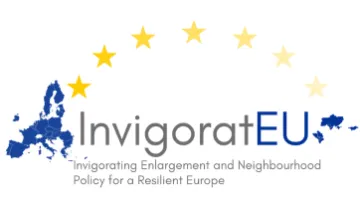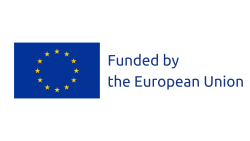New Horizon Europe Project: InvigoratEU Preparing Europe for its future

From January 1, 2024, InvigoratEU - a new Horizon Europe project coordinated by the EU-Chair at the University of Duisburg-Essen (UDE) together with the Institut für Europäische Politik (IEP) in Berlin - will examine how the EU can structure its future relations with its eastern neighbours and the countries of the Western Balkans. The Barcelona Centre for International Affairs (CIDOB) is part of this consortium, that will receive around three million euros in funding from the EU over the next three years.
The kickoff conference of the InvigoratEU project will take place in Tbilisi from 20-21 February 2024 – two years after the start of Russia´s war in Ukraine. The event, that will be attended by officials from the European Commission, will end with a reception at the presidential residence hosted by Salome Zourabichvili, President of Georgia.
With Ukraine, the Republic of Moldova and Georgia, the number of official candidate countries for accession to the European Union has grown to ten. This means that EU enlargement is once again a key strategy for contributing to greater stability and prosperity throughout Europe in times of new geopolitical challenges.
How can the EU strengthen its enlargement and neighborhood policy? Can it ensure Europe's future resilience beyond its borders? The InvigoratEU project, aims to answer these questions bringing together more than 50 researchers from various EU and non-EU countries pursuing three key objectives:
1. New strategies for a strong Europe: In light of a geopolitical turning point, the researchers primarily want to investigate how the enlargement and neighborhood policy needs to be reformed, how to respond to the political, military and economic ambitions of Russia, China, the US and Turkey in the Eastern neighborhood and the Western Balkans, and how the EU's foreign policy arsenal needs to be rebuilt so as to prepare for the new era of military interventions. New data sets will be created - e.g. a public opinion survey, an external influence index and a social compliance scoreboard.
2. Development of a future-oriented vision: New institutional frameworks will be designed - both for politics and for education in schools and universities. To this end, the researchers are developing scenarios, visions and strategies and organizing youth labs, workshops for young professionals and political debates throughout Europe. The aim is for the young Europeans to develop policy recommendations for European and national political actors, which will be presented in Brussels and European capitals at the end of the project.
3. Broad communication of the results: A CDE ("Communication, Dissemination and Exploitation") strategy is central to achieving the project's objective - the recommendations derived from the research findings will be communicated, disseminated and utilized as from day one.
“We start today envisioning new futures for the EU’s political agenda towards the countries of the Eastern Neighbourhood and Western Balkans”, says Víctor Burguete, Senior Research Fellow at the Barcelona Centre for International Affairs (CIDOB). Seven of the 18 members come from Georgia, Moldova, Ukraine and the Western Balkans (North Macedonia, Montenegro, Serbia). They are complemented by a network of civil society actors with nine representatives from all countries of the Western Balkans, Georgia, Moldova and Ukraine.
Further information: InvigoratEU
